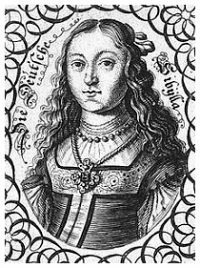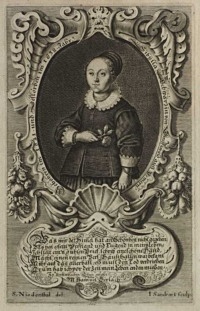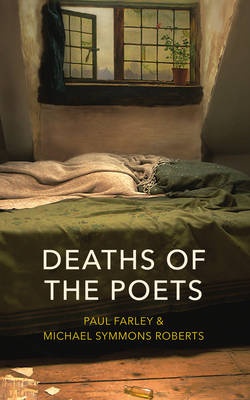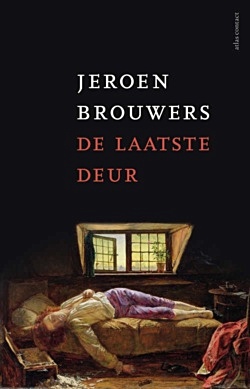Fleurs du Mal Magazine


Or see the index

Novalis
Zu Sophiens Geburtstag
Wer ein holdes Weib errungen
Stimme seinen Jubel ein.
Mir ist dieser Wurf gelungen
Töne Jubel – die ist mein.
So hat nie das Herz geschlagen
Nie so hoch und nie so gut.
Künftig neigt vor meinen Tagen
Selbst der Glücklichste den Hut.
Fest umschlingt den Bund der Herzen
Nun der Ring der Ewigkeit,
Und es bricht der Stab der Schmerzen
Am Altar der Einigkeit.
O –! im Himmel ist geschlossen
Unsrer Herzen süßer Bund.
Ist ein beßrer Spruch entflossen
Je des Schicksals weisen Mund?
Dir gehört nun was ich habe,
Was ich denke fühle bin,
Und du nimmst nun jede Gabe
Meines Schicksals für dich hin.
Was ich sucht, hab ich gefunden,
Was ich fand, das fand auch mich,
Und die Geißel meiner Stunden
Zweifelsucht und Leichtsinn wich.
Nimmer soll mein Mund dich loben
Weil mein Herz zu warm dich ehrt.
Tief im Busen aufgehoben
Wohne heimlich mir dein Wert.
Wenn ich wunde Herzen heile
Jede Stunde besser bin
Nie im Guten lässig weile
Dieses Lob nimm dir dann hin.
Liebes Mädchen deiner Liebe
Dank ich Achtung noch und Wert,
Wenn sich unsre Erdenliebe
Schon in Himmelslust verklärt.
Ohne dich wär ich noch lange
Rastlos auf und ab geschwankt,
Und auf meinem Lebensgange
Oft am Überdruß erkrankt.
Wenn nur unsre Mutter wieder
Frisch und ledig bei uns steht
Und im Kreise unsrer Brüder
Stolz die Friedensfahne weht.
Wenn dann noch ein Süßer Trauter
Unsre Lolly fest umschlang –
O –! Dann tönt noch zehnfach lauter
Unsres Jubels Hochgesang.
Wenig still durchhoffte Jahre
Leiten unverwandt zum Ziel,
Wo am glücklichen Altare
Endet unsrer Wünsche Spiel,
Uns, auf ewig Eins, verschwinden,
Wölkchen gleich, des Lebens Mühn
Und um unsre Herzen winden
Kränze sich von Immergrün.
Novalis (1772 – 1801)
Gedicht: Zu Sophiens Geburtstag
fleursdumal.nl magazine
More in: Archive M-N, Novalis, Novalis

Sibylla Schwarz
Ach wiltu mich verlassen
Ach wiltu mich verlassen,
O liebste Galate?
du meinst, die ich nicht seh,
die müß ich auch fort hassen;
Nein, ich lieb solcher massen,
daß ich für dich vergeh,
und schmeltze, wie der Schne,
den Phebus pflegt zu fassen.
Du bist mein Freud und Wonn’
und meines Hertzens Sonn’!
Ach sih’, ich bin ergeben
dem, das du wenig liebst,
und darüm mich betrübst,
dem losen Venus Leben.
Sibylla Schwarz (1621 – 1638)
Gedicht: Ach wiltu mich verlassen
fleursdumal.nl magazine
More in: Archive S-T, SIbylla Schwarz

Sibylla Schwarz
Epigramma
Du meinst ich soll dein noch gedencken und dich lieben,
ob du mich schon verläst, ey sey doch nicht so toll,
Ich habe dir ja offt vor disem schon geschrieben:
Daß niemand Eysen, Stein und Klöze lieben soll.
Sibylla Schwarz (1621 – 1638)
Gedicht: Epigramma
fleursdumal.nl magazine
More in: Archive S-T, SIbylla Schwarz

Novalis
Der Teufel
Ein loser Schalk, in dessen Beutel
Es just nicht allzu richtig stand,
Und der den Spruch, daß leider alles eitel
Auf unserm Runde ist, nur zu bestätigt fand,
Zog einst voll Spekulationen
In eine Stadt en migniatur,
Und schlug an jedes Tor und an die Rathaustür
Ein Avertissement mit vielen Worten schier,
Er werde heut in den Drei Kronen
Um fünf Uhr nachmittags den Teufel jedermann
Vom Ratsherrn bis zum Bettelmann
Für zwanzig Kreuzer präsentieren
Und ohne ihn bevor erst herzukommandieren.
Was Beine hatte, lief zum großen Wundermann,
Und überall war eine Weihnachtsfreude;
Der Bürgermeister schrieb mit Kreide
Den Tag an seiner Türe an,
Und jeder Ratsherr kam mit einem Galakleide
Und einer knotigen Perücke angetan,
Und will das Wunder sehn; auch mancher Handwerksmann
Kam hübsch bedächtlich angeschlichen
Und gab die Kreuzer hin, die er den Tag gewann.
Ein Schneider nur ging nicht zum Wundersmann
Und sprach: »Ich seh umsonst den Teufel alle Tage
In meiner jungen Frau zu meiner größten Plage,
Und der ist toller fürwahr als der beim Wundersmann.«
Als endlich männiglichen
Der Held sich mit dem leeren Beutel zeigt
Und erst mit wichtger Miene schweigt
Und dann geheimnisvoll nur wenig Worte saget
Und seine Auditoren fraget,
Ob auch kein Atheist in der Versammlung sei,
Erstieg die Trunkenheit der blöden Phantasei
Den Gipfel, und der Schalk beginnt die Gaukelei.
Nach manchem hocus-pocus ziehet
Der Schalk den Beutel auf und jeglicher bemühet
Sich sehr den Leidigen zu sehn, doch jeder siehet
Nichts auf der Welt –; ein junger Taugenichts,
Der näher stand, ein bel esprit, voll Zweifel
Wie mancher Kandidat, beginnt: »Ich seh ja nichts.«
»Das eben«, rief der Schalk, »das eben ist der Teufel.«
Novalis (1772 – 1801)
Gedicht: Der Teufel
fleursdumal.nl magazine
More in: Archive M-N, Novalis, Novalis
What is the price of poetry? An examination of how the deaths of great poets have shaped our culture’s distorted sense of poetry.
 From Chatterton’s Pre-Raphaelite demise to Keats’ death warrant in a smudge of arterial blood; from Dylan Thomas’s eighteen straight whiskies to Sylvia Plath’s desperate suicide in the gas oven of her Primrose Hill kitchen or John Berryman’s leap from a bridge onto the frozen Mississippi, the deaths of poets have often cast a backward shadow on their work.
From Chatterton’s Pre-Raphaelite demise to Keats’ death warrant in a smudge of arterial blood; from Dylan Thomas’s eighteen straight whiskies to Sylvia Plath’s desperate suicide in the gas oven of her Primrose Hill kitchen or John Berryman’s leap from a bridge onto the frozen Mississippi, the deaths of poets have often cast a backward shadow on their work.
The post-Romantic myth of the dissolute drunken poet – exemplified by Thomas and made iconic by his death in New York – has fatally skewed the image of poets in our culture. Novelists can be stable, savvy, politically adept and in control, but poets should be melancholic, doomed and self-destructive. Is this just a myth, or is there some essential truth behind it: that great poems only come when a poet’s life is pushed right to an emotional knife-edge of acceptability, safety, security? What is the price of poetry? In this book, two contemporary poets undertake a series of journeys – across Britain, America and Europe – to the death places of poets of the past, in part as pilgrims, honouring inspirational writers, but also as investigators, interrogating the myth. The result is a book that is, in turn, enlightening and provocative, eye-wateringly funny and powerfully moving.
Michael Symmons Roberts‘s sixth collection of poetry, Drysalter, was the winner of both the Forward Prize and the Costa Poetry Prize in 2013. He has published two novels, and is Professor of Poetry at Manchester Metropolitan University.
Paul Farley is the author of four collections of poetry and has won the Forward Prize for Best First Collection, the Whitbread Poetry Award and the E. M. Forster Award.
Edgelands, co-written with Michael Symmons Roberts, received the Royal Society of Literature’s Jerwood Award and the 2011 Foyles Best Book of Ideas Award and was serialised as Radio 4 Book of the Week.
The Deaths of the Poets
Michael Symmons Roberts & Paul Farley
ISBN : 9780224097543
Hardback, 400 pages
February 2017
Publisher: Random House Children’s Publishers UK
fleursdumal.nl magazine
More in: - Archive Tombeau de la jeunesse, - Book News, Art & Literature News, DEAD POETS CORNER, Galerie des Morts, POETRY ARCHIVE, Sylvia Plath

Sibylla Schwarz
Ohne die Liebste ist keine Freude
Kan die Welt auch wohl bestehen
ohn der Sonnen klahres Liecht?
kan man in der Nacht auch sehen,
wenn da Stern und Mond gebricht?
kan ein Schiffman auch wohl lachen
wenn sein Schiff begündt zu krachen?
Eben wenig kan ich leben,
wenn mir meine Dorile,
nicht ihr klares Liecht wil geben;
Eben wenig ich besteh,
wenn sie nicht mein Schiff regieret,
und durch ihre Freundschafft führet.
Springt ein Rehbock bey der Mutter,
mehr nicht, als er sonsten tuht?
hat ein Pferd bey vollem Futter,
auch nicht einen frischen Muht?
Also kan ich besser leben,
wenn ihr Liecht mir wird gegeben.
Zweyen Herzen, die sich lieben,
ist die allerhöchste Pein,
und das grösseste Betrüben,
wenn sie nicht zusammen sein,
weil sie sonsten nichts gedencken,
alß nur Arm in Arm zu schrenken.
Wie die Ulmen üm den Reben
gleichsam als verliebt sich drehn:
Also wündsch ich auch, mein Leben,
bey dir umgefast zu stehn,
und dir etwas vor zusagen
von den süssen Liebes=Plagen.
Darüm wil ich mich bemühen
auff mein Fretow hinzuziehn,
und mein Leben selbst nicht fliehen,
weil ich sonst erstorben bin,
alß denn wird sie mich erfreuen,
und mir meinen Geist verneuen.
Darüm wil ich gerne lassen
der Tollense Liebligkeit,
wil mein Leben selbst nicht hassen,
weil es nuhr erlaubt die Zeit;
weg mit disen schlechten Auen,
ich wil bald mein Fretow schauen.
Sibylla Schwarz (1621 – 1638)
Gedicht: Ohne die Liebste ist keine Freude
fleursdumal.nl magazine
More in: Archive S-T, SIbylla Schwarz

Novalis
Armenmitleid
Sag an, mein Mund, warum gab dir zum Sange
Gott Dichtergeist und süßen Wohlklang zu,
Ja wahrlich auch, daß du im hohen Drange
Den Reichen riefst aus träger, stumpfer Ruh.
Denn kann nicht Sang vom Herzen himmlisch rühren,
Hat er nicht oft vom Lasterschlaf erweckt;
Kann er die Herzen nicht am Leitband führen,
Wenn er sie aus der Dumpfheit aufgeschreckt.
Wohlauf; hört mich ihr schwelgerischen Reichen,
Hört mich doch mehr noch euren innren Ruf,
Schaut um euch her, seht Arme hülflos schleichen,
Und fühlt, daß euch ein Vater nur erschuf.
Novalis (1772 – 1801)
Gedicht: Armenmitleid
fleursdumal.nl magazine
More in: Archive M-N, Novalis, Novalis

Sibylla Schwarz
Wie kan der Liebe Joch doch süß und lieblich seyn
Wie kan der Liebe Joch doch süß und lieblich seyn,
weil manches Herze pflegt vohn ihren Schmertzen sagen,
und über ihre Last, und tieffe Wunden klagen?
wie ist dan süße das, das allen bringet Pein,
das wie ein starckes Gifft die Hertzen nimmet ein,
das manchen Helden würgt, ihr vihl auch heist verzagen?
wie kan uns das alsdan doch Frewd und Lust erjagen?
Nein, nein, der Liebe Tranck ist bitter Wermuhtwein.
Doch gleichwohl ist sie süß, weil vielen wird gegeben,
durch ihre Süßigkeit, ein angenehmes Leben.
Drüm / schließ ich, ist die Lieb ein angenehmes Leid;
(wiewohl eß selten kompt, daß wiedrig’ Eigenschafften
an einem Dinge nuhr zu gleiche können hafften)
die Liebe heisst und ist die süße Bitterkeit.
Sibylla Schwarz (1621 – 1638)
Gedicht: Wie kan der Liebe Joch doch süß und lieblich seyn
fleursdumal.nl magazine
More in: Archive S-T, SIbylla Schwarz

Novalis
Das Gedicht
Himmlisches Leben im blauen Gewande
Stiller Wunsch in blassem Schein –
Flüchtig gräbt in bunten Sande
Sie den Zug des Namens ein –
Unter hohen festen Bogen
Nur von Lampenlicht erhellt
Liegt, seitdem der Geist entflogen
Nun das Heiligste der Welt.
Leise kündet beßre Tage
Ein verlornes Blatt uns an
Und wir sehn der alten Sage
Mächtige Augen aufgetan.
Naht euch stumm dem ernsten Tore,
Harrt auf seinen Flügelschlag
Und vernehmt herab vom Chore
Wo weissagend der Marmor lag.
Flüchtiges Leben und lichte Gestalten
Füllten die weite, leere Nacht
Nur von Scherzen aufgehalten
Wurden unendliche Zeiten verbracht –
Liebe brachte gefüllte Becher
Also perlt in Blumen der Geist
Ewig trinken die kindlichen Zecher
Bis der geheiligte Teppich zerreißt.
Fort durch unabsehliche Reihn
Schwanden die bunten rauschenden Wagen
Endlich von farbigen Käfern getragen
Kam die Blumenfürstin allein[.]
Schleier, wie Wolken zogen
Von der blendenden Stirn zu den Füßen
Wir fielen nieder sie zu grüßen
Wir weinten bald – sie war entflogen.
Novalis (1772 – 1801)
Gedicht: Das Gedicht
fleursdumal.nl magazine
More in: Archive M-N, Novalis, Novalis
 De laatste deur (nieuwe herziene en zeer uitgebreide editie)
De laatste deur (nieuwe herziene en zeer uitgebreide editie)
door Jeroen Brouwers
Liefde-literatuur-dood is de thematische drie-eenheid binnen het oeuvre van Jeroen Brouwers. Zijn fascinatie voor zelfmoord dateert van het begin van de jaren zeventig, toen een vriendin zich het leven had benomen. Brouwers’ wens om het zelfmoordraadsel te begrijpen resulteerde in het inmiddels legendarische boek De laatste deur.
Dit is de ingrijpend herziene en zeer uitgebreide editie van het dertig jaar geleden verschenen werk, dat handelt over de zelfverkozen dood van Nederlandstalige schrijvers. Vanuit gevoelens van mededogen, begrip en solidariteit met hen die in het verleden en de meer recente tijd de hand aan zichzelf sloegen (van wie hij er enkelen van zeer nabij heeft gekend), poogt Brouwers aan de hand van hun literaire werk een mogelijke verklaring te vinden voor hun ultieme daad.
Brouwers karakteriseert op integere en invoelende wijze uiteenlopende figuren als François Haverschmidt (Piet Paaltjens), Menno ter Braak, Halbo Kool, Jan Emmens, Jan Arends, Dirk de Witte, Jan Emiel Daele, Jotie T’Hooft en tal van anderen. Deze nieuwe editie bevat ook levensgeschiedenissen van overledenen in de laatste jaren: Adriaan Venema, Anil Ramdas, Nanne Tepper, Joost Zwagerman en Wim Brands.
Aan De laatste deur is een supplement toegevoegd (De zwarte zon, De versierde dood en verspreide opstellen) met essays over buitenlandse schrijvers en onderwerpen als zelfmoordverenigingen en –sekten, en geruchten en verzinsels over zelfmoord. Een aantal van deze opstellen is niet eerder in boekvorm verschenen.
Auteur(s) : Jeroen Brouwers
Uitgeverij : Atlas Contact
ISBN : 9789045021089
Taal : Nederlands
Uitvoering : Hardcover
Aantal pagina’s : 1400
Verschijningsdatum : 15-03-2017
Afmetingen : 314 x 254 x 27 mm.
Gewicht : 700 gr.
fleursdumal.nl magazine
More in: - Archive Tombeau de la jeunesse, - Book News, Art & Literature News, Babylon, Frans, Brands, Wim, DRUGS & DISEASE & MEDICINE & LITERATURE, Galerie des Morts, Jeroen Brouwers, Zwagerman, Joost

Novalis
Geschichte der Poesie
Wie die Erde voller Schönheit blühte,
Sanftumschleiert von dem Rosenglanz
Ihrer Jugend und noch bräutlich glühte
Aus der Weihumarmung, die den Kranz
Ihrer unenthüllten Kindheit raubte,
Jeder Wintersturm die Holde mied,
O! da säuselte durch die belaubte
Myrte Zephir sanft das erste Lied.
Eva lauschte im Gebüsch daneben
Und empfand mit Jugendphantasie
Dieser Töne jugendliches Leben
Und die neugeborne Harmonie,
Süßen Trieb empfand auch Philomele
Leise nachzubilden diesen Klang;
Mühelos entströmet ihrer Kehle
Sanft der göttliche Gesang.
Himmlische Begeistrung floß hernieder
In der Huldin reingestimmte Brust,
Und ihr Mund ergoß in Freudenlieder
Und in Dankgesängen ihre Lust,
Tiere, Vögel, selbst die Palmenäste
Neigten staunender zu ihr sich hin,
Alles schwieg, es buhlten nur die Weste
Froh um ihre Schülerin.
Göttin Dichtkunst kam in Rosenblüte
Hoher Jugend eingehüllt herab
Aus dem Äther, schön wie Aphrodite,
Da ihr Ozean das Dasein gab.
Goldne Wölkchen trugen sie hernieder,
Sie umfloß der reinste Balsamduft,
Kleine Genien ertönten Lieder
In der tränenlosen Luft.
Novalis (1772 – 1801)
Gedicht: Geschichte der Poesie
fleursdumal.nl magazine
More in: Archive M-N, Novalis, Novalis

Sibylla Schwarz
Sonnet
(Daphne aus der Schäfererzählung: Faunus)
Hier hab ich nun mein sehnliches Verlangen:
hier liegt mein Lieb, hier ligt mein ander ich:
hier giebt das Glück sich selbst gefangen mich:
hier mag ich nun mein Lieb vielmahl umfangen:
hier mag ich nun auch küssen seine Wangen:
Cupido hört mein Klagen inniglich,
und wil nun auch so hülffreich zeigen sich;
Nun mag ich wohl mit meinem Glücke prangen;
die Venus zeigt mir iezt ein guhtes Ziel,
ich wil nur selbst, nicht was ich gerne wil;
O Blödigkeit, du must nur von mir weichen!
weil du hir bist, wärt meine grosse Pein;
Wer lieben wil, mus nicht so blöde seyn,
sonst kan er nicht der Liebe Lohn erreichen.
Sibylla Schwarz (1621 – 1638)
Gedicht: Sonnet
(Daphne aus der Schäfererzählung: Faunus)
(Blödigkeit bedeutet Schüchternheit)
fleursdumal.nl magazine
More in: Archive S-T, SIbylla Schwarz
Thank you for reading Fleurs du Mal - magazine for art & literature